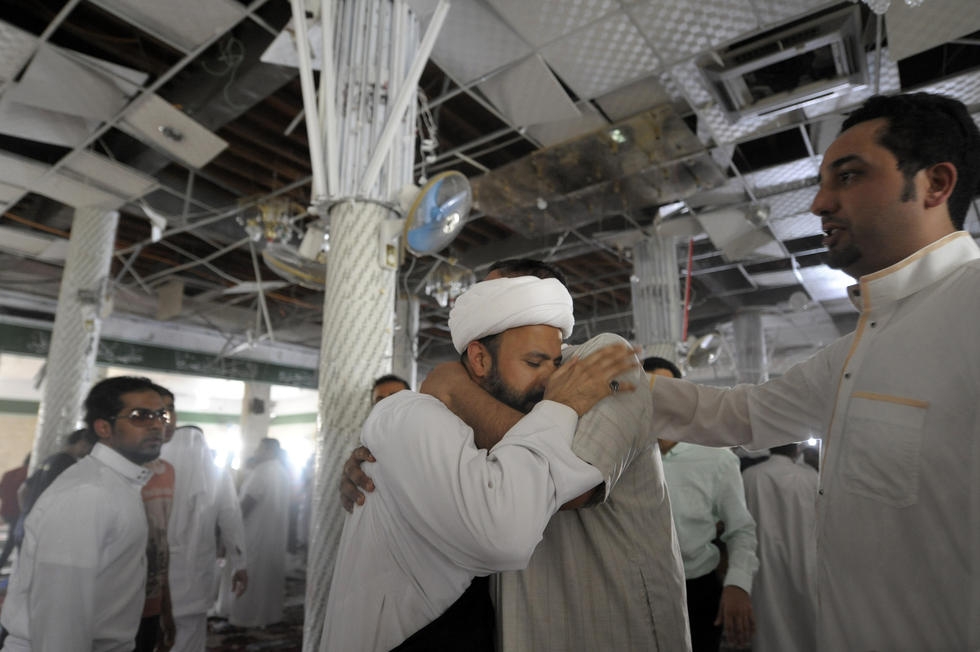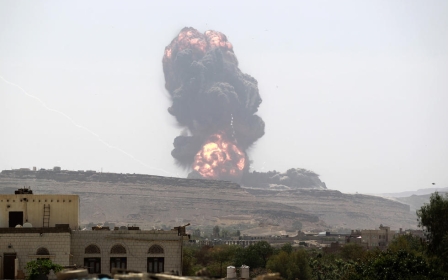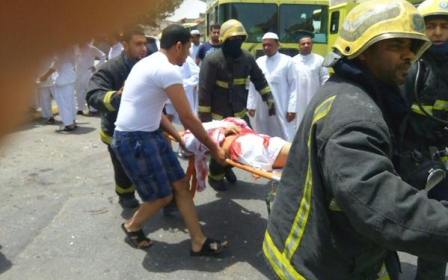'We must stop sectarian hatred': Qatif resident speaks out in Saudi Arabia

On Friday 22 May a lone suicide bomber entered a mosque in the village of Qudaih and detonated an explosive belt, killing himself and at least 21 worshippers.
The attack in Saudi Arabia's Eastern Province, which is home to the country's Shiite minority community, has prompted authorities to pledge to protect all of its citizens.
It is the second attack believed to have been carried out by the Islamic State group in the Eastern Province, after multiple gunmen killed eight people at a Shiite religious house in November last year.
Middle East Eye interviewed Sayed Mohammed, a resident of Qudaih, and he shared his thoughts on why he believes the Shiite community are being targeted in Saudi Arabia.
“I am a normal citizen of this small town. I participate in some civil society and charitable organisations.
The protest in Qatif on Saturday is calling for an end to the hatred that has built up in our society. The people of Saudi Arabia are one. We demand our rights as citizens.
The protest will be joined by people from across the province. We will demand an end to hatred and stopping the Takfirism (accusations of apostasy) against Shiites. We are Muslims, and we testify that there is no God but God and Muhammad is the Messenger of God.
The only difference between Sunnism and Shiism is in the teachings. It should not escalate to the level it has got to recently: to murder and accusations that we are criminals. The criminal act was that someone carried out an attack while people were praying on Friday, a holiday for Muslims.
I expect there will be some Sunnis at the protest – but their numbers will be very limited. I hope there will be some Sunnis there – people who are moderate in their thought and want to stop the increasing hatred between Muslim brothers.
The Takfirism did not begin with the person that committed attack on Friday. It stems from high-profile figures who carry a lot of weight in the Sunni community: sheikhs, preachers. They have been responsible for spreading sectarian hate in Saudi Arabia.
Saudi media and sectarianism
The real problem is the preachers who say that Shiites are not Muslims, the curriculum that teach children, from the first year of primary school, that Shiites are not Muslims. We need to see earnest efforts to stop these things.
This kind of opinion is also found on various Saudi media outlets – al-Arabiya is among them.
Some journalists were present at the site just after the explosion on Friday. They were expelled from the site for a short period. It was an immediate reaction by the people there - these channels (who the journalists work for) are the ones that are responsible for publishing Salafi, Wahhabi, Takfiri sectarianism.
I hope there will not be any more attacks. But what happened yesterday could happen tomorrow in any other small town. This is because the Takfiri ideology has not gone away. The Takfiri preachers are still around – they are spreading their thought on YouTube and Twitter.
They are saying that this attack did not affect Muslims, but targeted infidels and Jews. We fear that there will be another attack like this.
I hope the state will offer us some protection. Their response to the attack is just a short-term reaction – within days or weeks the authorities will have abandoned protecting us. But the head of the beast has not been cut off. Just go on Twitter and you will see it. They (the authorities) need to look at the real reason behind this attack and cut it off there.
Twitter is full of people celebrating the attack yesterday. There are also people, Sunnis, showing solidarity with the people of Qatif. There is a group of them. But they are not a group that carries a lot of weight in society.
Those that have a louder voice are those that are saying that the people of Qatif are murderers and criminals.
They need to deal with the root causes of the problem. The preachers in the mosques, the school curriculum, the media outlets. These need to be changed.
We need to be portrayed as brothers, as human beings, deserving equal rights. We are not just brothers in religion; we are brothers in humanity.”
New MEE newsletter: Jerusalem Dispatch
Sign up to get the latest insights and analysis on Israel-Palestine, alongside Turkey Unpacked and other MEE newsletters
Middle East Eye delivers independent and unrivalled coverage and analysis of the Middle East, North Africa and beyond. To learn more about republishing this content and the associated fees, please fill out this form. More about MEE can be found here.




